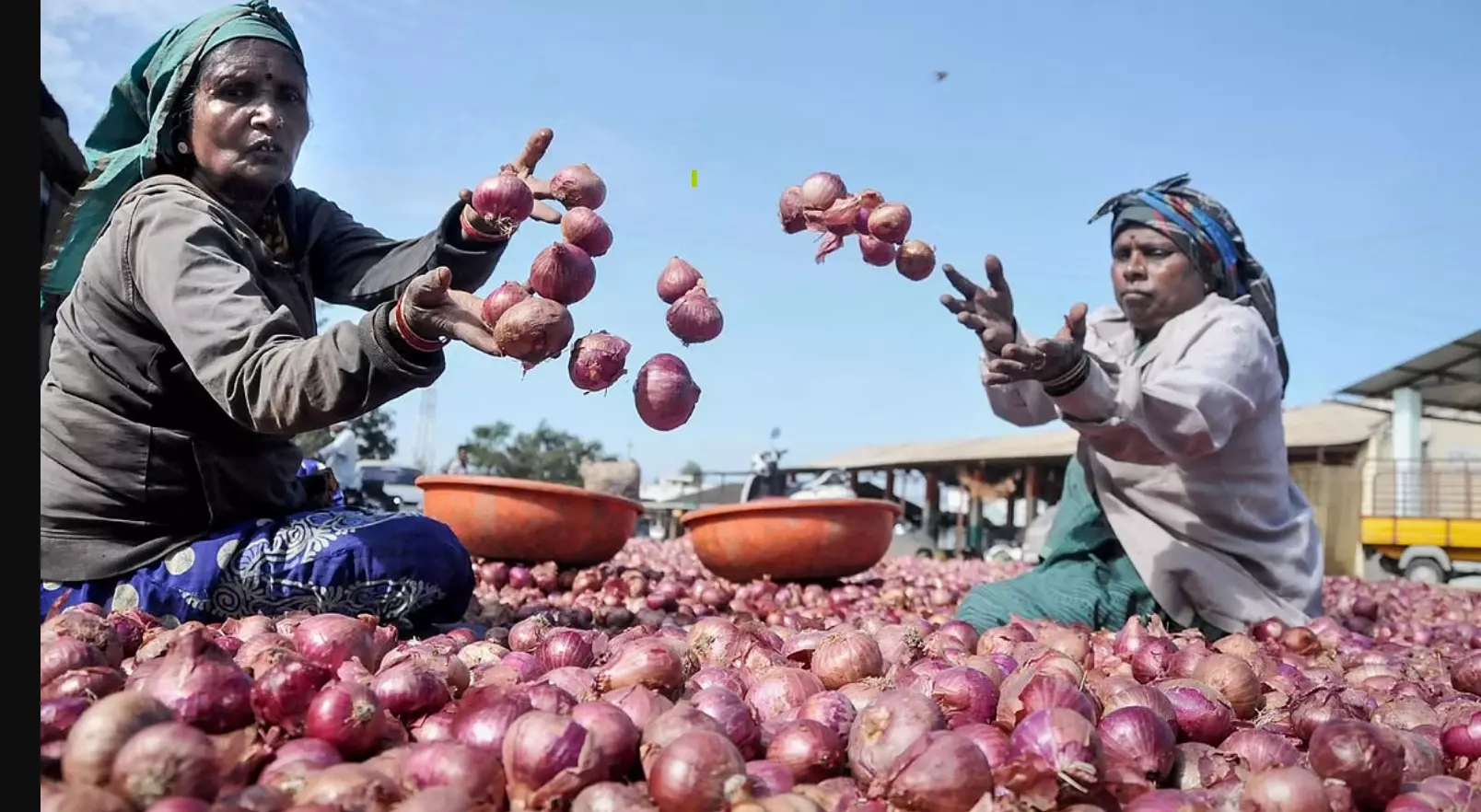A prudent intervention?

On Saturday, the Central government took two significant steps in its bid to stabilise surging onion prices. The first was the imposition of a 40 per cent export duty on onions, while the second was the decision to offload onion stocks into various wholesale markets across the country. These actions come at a crucial juncture as the government apparently grapples with the fear that onions might follow the same price trajectory as tomatoes, a situation it wants to avoid especially as we approach general elections. Notably, the national average price of onions has increased on a year-on-year basis. The imposition of a 40 per cent duty on onion exports is a significant move, and serves a pertinent purpose. Primarily, it aims to deter excessive onion exports — a trend that could potentially lead to a scarcity of this essential commodity in the domestic market. With onions being a staple in almost every Indian kitchen, any shortage could significantly impact households across the country. This export duty, while impacting exporters' profit margins, aims to ensure an adequate supply of onions for the Indian population. The second measure, offloading onion stocks in wholesale markets, takes a more direct approach. By increasing the supply of onions in these markets, the government hopes to counteract rising retail prices. High onion prices can pose a significant financial burden on consumers, and this move aims to alleviate some of that strain. These decisions are taken in response to recent developments in the onion market, particularly the surge in prices. Earlier this month, as prices spiked in Maharashtra's Lasalgaon mandi, the government intervened by releasing onions from a 0.3-mt buffer that had been created just a couple of months earlier. This buffer, formed from the rabi crop, was intended to act as a stabilising force in the market. The fact that it had to be utilised so soon underscores the urgency of the situation. However, reassuringly, the prices of onions have now started to cool down. It is learnt that even the private traders who were holding on to their stocks have started offloading, fearing a crash in prices. Furthermore, the government's recent actions are emblematic of its commitment to ensuring the well-being of the common citizens, especially in light of the concerning inflationary trends projected by both the Reserve Bank of India (RBI) and the National Statistical Office. Weather-related agricultural imbalances can make this task particularly daunting, and the government deserves credit for proactively addressing these challenges. It is heartening to observe the government's willingness to work alongside the RBI in its efforts to combat inflationary pressures. This collaboration signifies a coordinated approach to tackling economic challenges and underscores the government's seriousness in addressing the issue of food inflation. However, as these measures are implemented, it is crucial that the government also takes measures to ensure that they do not negatively affect onion farmers. While curbing exports is necessary to stabilise domestic prices, the livelihoods of farmers who rely on exports should not be jeopardised. Ensuring that farmers receive fair compensation and support during these times of market intervention is essential for maintaining their well-being and confidence in government policies. The Central government's recent moves regarding onion prices are commendable and timely. They reflect a government that is responsive to the concerns of the common man and is willing to take proactive steps to mitigate the impact of food inflation. As we move closer to general elections, it is imperative that such measures are carefully balanced to ensure the well-being of both consumers and farmers. By striking this equilibrium, the government can demonstrate its commitment to the welfare of all its citizens.



